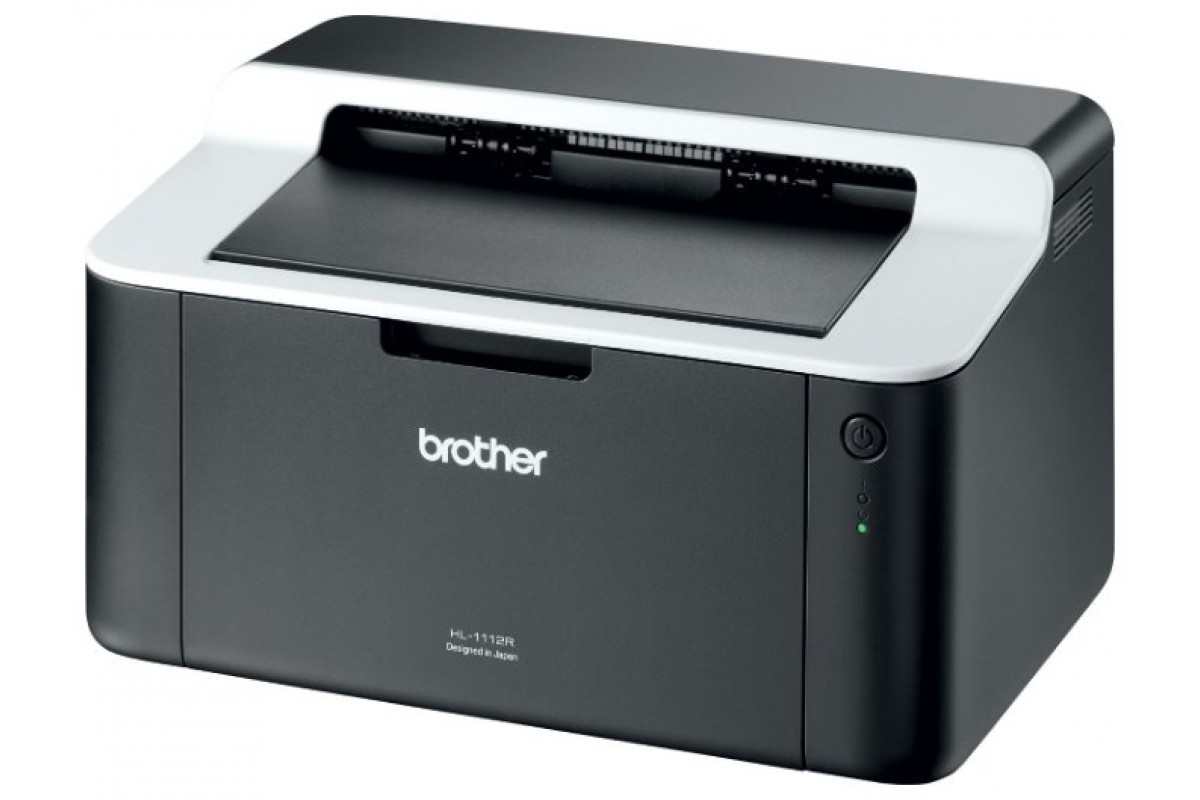Rating of the best mirror adhesives for 2024

The interiors of apartments, houses, offices, public institutions and premises are not complete without the use of mirrors, which not only fulfill their usual function, but are also placed as a decorative element. A mirror can radically change the appearance of any space, visually expanding it. Mirror mosaic creates bright glare, unusual effects, it can be used in the bathroom, in the kitchen as an apron. In addition, elements with a reflective surface and glass parts are used to decorate furniture and accessories. Stained glass created from multi-colored pieces creates a special atmosphere.
Mirrors without frames or special fasteners, mosaic mirrors, are fixed directly to the wall with a special glue suitable for most types of materials and textures. Mirror glue is produced by domestic and foreign companies, whose product has a wide range of products.

Such glue creates a strong elastic layer between the mirror and the wall, thereby maintaining the integrity of the back side and the surface as a whole. Even if the mirror breaks or cracks over time, its fragments will not fall, not scatter, but remain attached to the interlayer. This method of fixing is suitable for objects that are light and medium in size.
Types of glue for mirrors and glass
Another name for this glue is liquid nails. It contains synthesized rubber and polymeric substances. The classic composition for installation work includes a special clay with increased elastic properties. Besides, liquid nails are environmentally friendly and harmless.
By its composition, the glue is acrylic and neoprene:
- Acrylic. This type shows good water solubility, but is not suitable for all materials, including metal and tiles. Reacts to high ambient temperatures. Eco-friendly. Due to its water solubility, it cannot be used in places of high humidity.
- Neoprene. It contains synthetic rubber. Neoprene glue can glue the mirror to any material, including tiles. It is a substance with good adhesion, but has a pungent chemical odor.
Also, compositions for gluing glass and mounting mirrors are divided into three types:
- solvent based;
- silicone;
- hybrid options.
Solvent based adhesive. A budget option. Available in two types - for gluing glass and fixing a mirror. However, the first type of glue is not suitable for objects with a reflective surface, since the components included in the composition can break the amalgam, stains appear over time that can spoil the appearance of the product. Fast drying.
Silicone. Chemically neutral, which eliminates the occurrence of undesirable reactions when interacting with different types of materials. Creates a strong film that firmly holds the mirror to the base. This adhesive has a longer drying time than solvent-based formulations. The cost of the glue is higher than that of the previous version.
Hybrid composition.It is simple and easy to work with such glue. Beginners, as well as those who do not have experience in carrying out repairs, will cope with it. In terms of cost, this is the most expensive option, but it demonstrates a high quality connection.
Best solvent-based mirror adhesive
"Soudal 47A"
Ready-to-use glue from the Belgian manufacturer for mirrors and glass products. Contains a weak solvent and synthetic rubber - such a base does not harm the silver layer of the amalgam. Demonstrates high strength of the resulting connecting layer, moisture resistance, fast solidification.

It interacts well with most building materials, concrete, brick, plastered surfaces, porcelain stoneware, ceramic tiles. The exceptions are polypropylene and polyethylene. Available in 300 ml packages.
The average cost is 250 rubles.
- firmly fixes decorative elements, mirror mosaics;
- temperature range from -20 to +60 degrees;
- gentle interaction with the high quality silver layer and sensitive surfaces;
- dries quickly;
- can be used as a sealant.
- has a specific smell.
The best silicone based mirror adhesives
"Bison Mirror Adhesive"
A neutral silicone adhesive designed for fixing small mirrors to any surface, including concrete, plaster, wood. Resistant to solvents, gasoline, oil and ethanol. Differs in fast setting - about 5 minutes, however, complete drying occurs after 3 days.

Heat-resistant, withstands the temperature range from -50 to +150 degrees. It has a pasty white texture. Produced in 60 ml tubes, the country of origin is Holland.
The average cost is 351 rubles.
- does not contain acids;
- creates an elastic layer;
- strong, reliable fastening;
- economical consumption;
- waterproof.
- dries up for a long time.
Soudal Mir-o-Bond
Silicone glue-sealant in tubes, volume 310 ml. Chemically neutral, does not contain solvents, making it absolutely safe for amalgam. In addition, Soudal Mir-o-Bond is non-corrosive to metals. Suitable for gluing mirrors, decorative items with a reflective layer. Can be used on smooth and uneven surfaces.

Securely fixes the object to materials such as concrete, plaster, brick, ceramics, wood, metals and even plastic. Heat resistance from -40 to +150 degrees. The initial setting is achieved in 30 minutes.
The average cost is - 370 rubles.
- can be used in rooms with high humidity;
- resistance to temperature changes;
- harmless to amalgam;
- no pungent smell;
- elasticity after drying.
- freezes for a long time.
Moment Herment
Silicone adhesive sealant, which is in high demand among consumers. Provides reliable adhesion to all surfaces, including wood, metal, plastic and glass. Does not damage the surface, which makes external use possible. The composition is completely neutral. It tolerates aggressive chemical attack and does not deteriorate over time. The color is transparent.
The average cost is 520 rubles.
- For all types of work;
- Neutral composition;
- Reliability;
- Durability.
- Not found.
Ranking of the best hybrid mirror adhesives
"TYTAN Professional"
A special glue designed for gluing mirrors of any type and size, mirror tiles, mosaics, as well as non-ferrous and ferrous metal products. Neutral, does not provoke corrosion of metals and metal alloys. TYTAN Professional is formulated with resins and synthetic rubber. The product is suitable for use on porous construction surfaces such as brick, concrete, plasterboard, as well as wood materials. The resulting seam is elastic, strong and durable.

Has a beige color.Due to its moisture resistance, it can be used in showers, bathrooms or kitchens. The setting time is from 10 to 20 minutes, and the time of complete hardening is up to 72 hours. It is characterized by heat resistance in the temperature range from -20 to +70 degrees. Substance consumption is from 300 to 500 g / square meter.
The average cost is 165 rubles.
- does not destroy the reflective layer;
- high fastening strength;
- moisture and heat resistance;
- does not contain toluene;
- attractive cost;
- fast setting.
- not suitable for Teflon, silicone, unmodified bitumen.
"Maxiplix AC 17W"
Osnovit Maxiplix AC 17 W is a specialized glue designed for gluing glass tiles (transparent, colored), decorative mosaics, and marble. It is used for facing vertical or horizontal surfaces, for facing walls and floors with decorative tiles, glass blocks, natural or artificial stone, granite. Ideal for decorating artificial ponds, walls, pool floors, fireplaces, as well as facing terraces, plinths, house facades, heated floors ("warm floor"), and other outdoor and indoor work.

As for the types of surfaces recommended for work, these are concrete, brick, plaster, foam and aerated concrete, gypsum plasterboard, gypsum plasterboard, cement board, other standard and complex non-deformable surfaces and bases.
Retains its properties in the temperature range from -50 to +70 degrees. The ready-made mixture is plastic and can be used within 4 hours. The setting time is 20 minutes, the time for complete drying and hardening of the layer is 24 hours.
The average cost is - 340 rubles.
- does not change the original color of the facing material;
- high bond strength;
- the ready-made solution is plastic, easy to apply;
- water resistance, frost resistance;
- wide range of applications.
- not found.
"Tegra Point"
Liquid nails based on rubber. A substance from a Polish manufacturer intended for fixing all types of mirrors, decorative tiles, mosaics, as well as panels and borders. Sold in 80 ml tubes. Tegra composition does not harm amalgam, demonstrates strength, good adhesion to surfaces - ceramic tiles, concrete, wood, plasterboard, glossy surfaces.

When the glue hardens, an elastic layer is formed, which has a persistent water-repellent property. Tegra demonstrates fast initial setting, does not flow when the product is installed vertically, providing a strong, reliable attachment of decorative elements. The adhesive must be applied indoors at a temperature of 15-30 degrees Celsius. The color of the substance is beige, the weight of the tube is 0.07 kg.
The average cost is 192 rubles.
- universal glue;
- convenient packaging;
- high quality adhesive;
- good adhesion to building materials;
- elastic elastic layer;
- heat resistance (in the range from -20 to +60 degrees);
- profitability;
- ease of use.
- not found.
"Penosil MirrorFix Н1296"
This professional adhesive sealant contains synthetic rubber, which is safe for the silver amalgam layer. With Penosil MirrorFix H1296, concealed fixing can be carried out without the need for additional fixing structures. Reliably fixes mirrors and decorative elements (including mirror mosaics) up to 6 mm thick, resistant to moisture and ultraviolet light. It is also used for gluing decorative panels, boards, polyurethane elements, polystyrene. The only exceptions are items with epoxy powder coating. It interacts well with wood materials, glass, stone, metals, concrete, plaster, painted surfaces. When solidified, it creates a strong layer, characterized by elasticity, strong connection.

The operating temperature ranges from -15 to +60 degrees. Drying takes 10-15 minutes.Penosil MirrorFix H1296 is available in 310 ml packs. The color of the substance is beige.
The average cost is 432 rubles.
- does not destroy the amalgam;
- moisture resistance;
- dries quickly;
- resistance to UV rays;
- excellent adhesion.
- not found.
"Decra Bond 911 LV"
A remedy from an English manufacturer. Application UV glue with a transparent texture for gluing glass elements to each other (end gluing), as well as gluing glass to metal ("glass-glass", "glass-metal"). It is a one component, low viscosity acrylic adhesive. It polymerizes in the compound after irradiation with ultraviolet rays. Due to its capillary property, it easily penetrates into the smallest gaps, successfully fills the seams and gaps of the structure.

Special properties Decra Bond 911 LV allows bonding of different materials. This makes it possible to significantly expand the range of applications, and also ensures high reliability of the connection. Decra Bond 911 LV is used in the production of the following glass interior elements:
- Furniture (tables, shelves, cabinets);
- Showcases, counters and counters;
- Phone stands;
- Stained glass and stained glass decorative elements.
- The substance is available in bottles of 10g, 50g, 100g. and 200g.
The average cost is 195 rubles.
- freezes quickly;
- strong bond;
- easy to use;
- remains transparent when dry;
- many applications.
- has a characteristic odor;
- average level of toxic hazard.
"Point 93"
One-component adhesive from a Polish manufacturer, based on synthetic rubbers and organic solvents. Suitable for indoor and outdoor use, as the layer retains strength in the temperature range from -20 to +60 degrees. It has a wide variety of applications: gluing wood, plaster, glass, crystal elements, metal products, stone, chipboard, expanded polystyrene, installation of thresholds and baseboards, plinths, ceramic tiles. The substance is suitable for finishing work on walls, ceilings, wood panels. Point 93 has a pasty consistency, is water resistant, so it can be used in a shower or a bathroom.

Initial setting takes 10-20 minutes. One 280 ml tube is enough to cover 1 square meter. It is characterized by frost resistance, the finished solidified adhesive layer does not deform at low temperatures.
The average cost is 122 rubles.
- affordable cost;
- high adhesion;
- strong fixation;
- convenient adjustment time (15-20 minutes).
- not found.
Which glue to choose?
Mounting mirrors for dry and wet rooms requires the selection of a special material that can reliably fix the object without spoiling its attractive appearance. Therefore, when removing glue, you should pay attention to the following characteristics of the substance:
Elasticity. One of the important criteria is the glue setting. If the substance forms a solid layer during solidification, then tension may arise in the fixed product, as a result of which the reflective surface may crack, or completely break off from its base. If, when the glue dries, it forms an elastic layer that sticks tightly to the base of the product, the item will be securely fixed and will last a long time.
The reliability of the layer. The second important requirement for the material for fixing decorative elements is the strength of the layer created by the adhesive, as well as its reliability.

Safety. It is recommended that you read the instructions for the selected adhesive, which will indicate whether the substance can be used in residential areas. Some compounds, under the influence of temperatures, emit harmful chemical compounds, which can adversely affect the health of the residents of the room.
Ease of use. It is desirable that the use of glue does not require special skills.The composition should be easy to apply, evenly distributed over the surface, creating a thin film.
Composition. The glue must be free from alkalis and acids that destroy the amalgam. Therefore, it is not recommended to purchase universal glue - its composition may contain components that destroy the reflective side of decorative elements.
Fast drying. If the adhesive hardens for a long time, it becomes necessary to manually hold the mirror until it is fixed, or to build complex structures that can hold it until it fully adheres.
Colour. When dry, the substance should not change its color, turn yellow or darken, otherwise unattractive spots on the edges of the product will be noticeable.
Moisture resistance. When fixing mirrors in the bathroom, shower, kitchen and other rooms with high humidity, you should choose an adhesive that is resistant to moisture and temperature extremes.

When attaching mirrors to various surfaces, you should adhere to the following recommendations:
Glass. If it is necessary to connect an object with this material, it is necessary to apply glue along the perimeter of the glass plane, at a distance of 2 cm from the edge, and also on the surface with stripes crosswise.
Wallpaper. It is not recommended to glue the mirror directly onto the wallpaper - under the weight of the object, the wallpaper will simply fall behind the wall and the fragile material will break. Therefore, it is better to pre-fix the mirror on a chipboard or plywood substrate, and free the installation site of the structure from wallpaper and prime the concrete.
Wood. Before proceeding with the installation of the mirror, it is recommended to attach it to a wooden surface, make markings, and then degrease the wood with a solvent. Apply silicone glue to the amalgam in short strips and, applying to the wooden surface, align with the markings.
Drywall. In the case when the product has a weight of more than 20 kg, it can be glued to drywall using liquid nails. The substance should be applied at a distance of 2 cm from the edge of the glass. After applying the mirror to the wall and initial grasping, you need to substitute the fastening structure so that the object does not slide down.
Tile, ceramic tiles. First you need to degrease the work surface, then apply glue along the perimeter of the back of the glass, slightly stepping back from the edge. Cover the plane of the glass with glue strips in the form of a lattice, then press the mirror against the tile, adjusting its position. Substitute the holding support from below until the adhesive is completely dry. The gap between the wall and the mirror can be sealed with a transparent or white sealant.

Painted surface. It is necessary to clean the place where the mirror is located from paint, and to cover the treated area with a primer. Then make the markup, apply glue to the back of the product and attach it to the wall, substituting the mounting supports.
A wide range of adhesives allows you to decorate the room with mirror elements, fixing them on the selected surface. Such opportunities allow you to create an unusual design for any room. Mirrors create a unique, sophisticated magical atmosphere, filling the space with play of light and sparkling highlights. The space visually expands, and the interior takes on a special brightness.
new entries
Categories
Useful
Popular articles
-

Top rating of the best and inexpensive scooters up to 50 cubic meters in 2024
Views: 97661 -

Rating of the best materials for noise insulation for an apartment in 2024
Views: 95022 -

Rating of cheap analogues of expensive medicines for flu and colds for 2024
Views: 91751 -

The best men's running shoes in 2024
Views: 87681 -

Top ranking of the best smartwatches 2024 - price-quality
Views: 85091 -

Best Complex Vitamins in 2024
Views: 84801 -

The best dye for gray hair - 2024 top ranking
Views: 82406 -

Rating of the best wood paints for interior use in 2024
Views: 77202 -

Ranking of the best action cameras from China in 2024
Views: 75269 -

Rating of the best spinning reels in 2024
Views: 74827 -

The most effective calcium supplements for adults and children in 2024
Views: 72462 -

Top rating of the best in 2024 means for male potency with a description
Views: 68296









